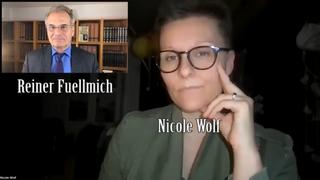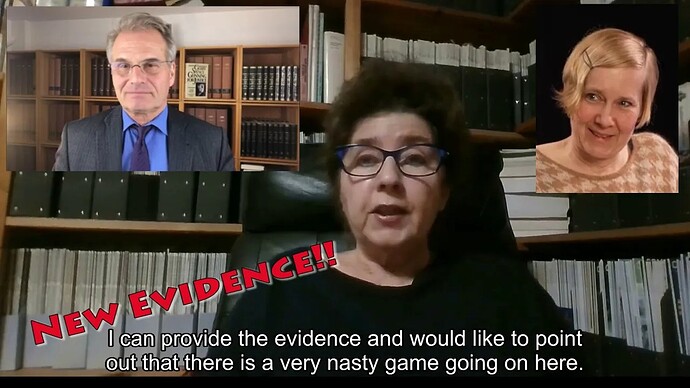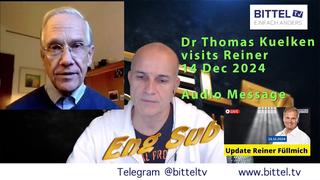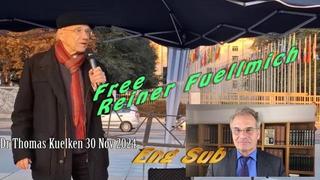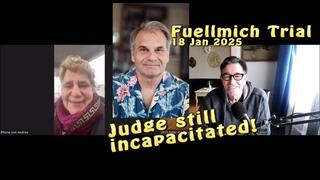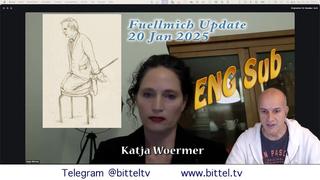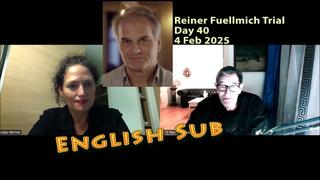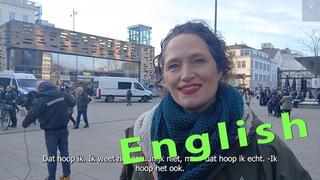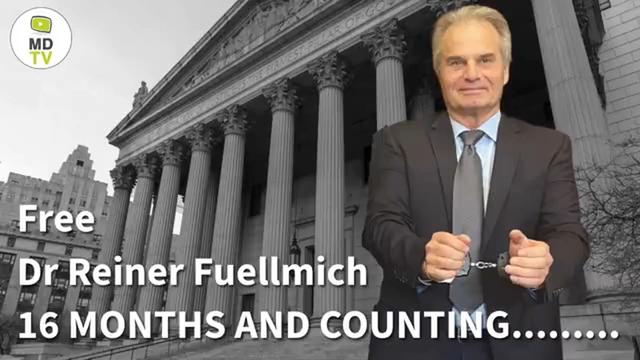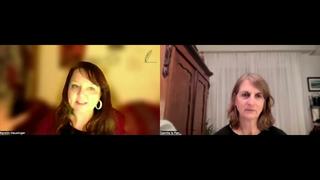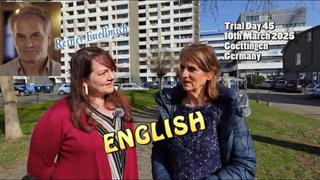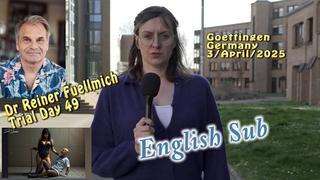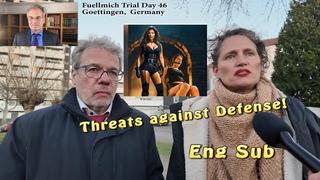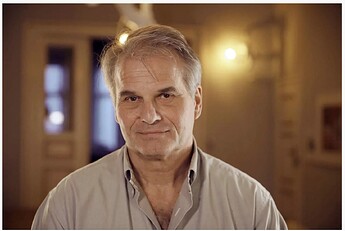Recently there has been a wave of attention to Reiner in the English alternative media. But what is happening with Reiner now?
The Trial of Dr. Reiner Fuellmich - Hearing Day 50 - Final Plea by main lawyer Katja Woermer and the beginning of the defendant’s "Last Word"
After the last-minute cancellation of the April 14 session, the trial against Dr. Reiner Fuellmich resumed on Tuesday, April 15, 2025, marking its fiftieth day in court. On this day, the defense was led by Katja Woermer and Edgar Siemund. Christoph Miseré was once again absent, and Tobias Pohl excused due to medical reasons. On the prosecution side, a young and previously unknown deputy public prosecutor appeared on behalf of the state.
From the outset of the hearing, which began around 9:30 a.m., Katja Woermer raised an explosive point: several witnesses could confirm that Presiding Judge Schindler had used the informal "du" with witness Viviane Fischer when handing her documents in March 2024 after her testimony. According to Woermer, this detail suggests a personal connection between the two. She immediately filed an oral motion to recuse Judge Schindler, with a written justification to follow by April 22.
The presiding judge appeared visibly unsettled.
Woermer also attempted to address the increasing pressure placed on the defense: among the observers in the courtroom was once again a well-known member of a cyberbullying group allegedly moderated, among others, by the plaintiffs themselves. But the judge cut off this line of argument immediately: objections had to be submitted in writing, and speaking time was limited. The closing argument was required to conclude before noon.
Woermer then addressed Schindler directly: “You would have liked a proper closing argument from me. Well, I would have preferred a real criminal trial for that!”
A Fiery, Analytical, and Uncompromising Closing Plea
Visibly outraged yet razor-sharp, Katja Woermer used the time until the midday break to deliver a powerful closing argument. Over the course of nearly three hours, she presented a lucid and scathing review of the trial: from the outset marked by procedural irregularities—an illegal arrest, a simulated extradition from Mexico, the refusal to hear the accused before an investigating judge—to serious violations of the right to defense during the main trial: the abrupt termination of the evidentiary phase in May 2024, a written-only procedure from July onward in breach of the principle of public trial, the systematic rejection of all motions for evidence and recusals, and the drastic limitation of the defense's right to question witnesses, including those it had summoned.
The charges brought against Dr. Reiner Fuellmich would not hold, she asserted, and the entire proceedings were politically motivated. In a democratic constitutional state, she stressed, it is entirely legitimate for the defense to denounce illegalities—especially when it is clear that the fundamental principles of due process have been violated.
With a tone both passionate and precise, Woermer defended her client with the energy of a “furious mother.” According to some observers, she “said everything, gave everything, laid everything bare.”
An Explosive Document: The BKA File Weighs In
Woermer also referenced a dossier passed to her colleague Dr. Christoph Miseré by a whistleblower who, according to his own statements, comes from the German intelligence community. Introducing such a document into criminal proceedings is not a trivial act, she remarked: a lawyer knows the implications—in court, only the truth should matter.
One particularly troubling detail: in response to an official inquiry, the Federal Criminal Police Office (BKA) merely stated that the style of the text “did not match” that typically used by the agency—without actually denying its origin. Conclusion: it is “not excluded” that the document may indeed have come from the BKA.
Dissent and Criminalization: A Narrative Construct?
Woermer also denounced how Dr. Reiner Fuellmich had been portrayed as a political dissident. Instead of focusing on the accusation of “breach of fiduciary duty,” the indictment was saturated with phrases like “linked to COVID” and “relevant to national security.” The accused’s name was systematically associated with terms such as “antisemitism,” “conspiracy scene,” or “conspiracy theorist”—a deliberate strategy, Woermer argued, aimed at manipulating judicial authorities and applying political pressure.
The smiles that had previously graced the judges’ bench disappeared. During the recess, Woermer's performance was met with applause.
An Explosive "Final Statement": Fuellmich Strikes Back
Following a brief supplemental statement by Edgar Siemund, referencing his closing argument from April 3, Dr. Reiner Fuellmich began his “last word” at around 1:15 p.m. Over the course of nearly two hours, he retraced his involvement in the Corona Committee and reaffirmed his fundamental criticisms of state health policies—especially the vaccination campaign.
Presiding Judge Schindler interrupted him repeatedly, deeming his remarks off-topic. Tensions rose, and the exchange became increasingly confrontational, marked by sharp statements and mutual reproaches.
When Fuellmich ultimately accused the judge of “following orders,” Schindler reacted angrily, categorically rejecting the allegation. On multiple occasions, Fuellmich was ordered to refrain from personal attacks. Each warning was met with a new motion to recuse.
He defended himself by referencing the case file: “You’re the one who introduced the Covid connection—it’s in the file. The file should have been kept clean.”
The session was adjourned around 3:30 p.m. Dr. Reiner Fuellmich continued his final statement on Thursday, April 17. A detailed report will follow.
